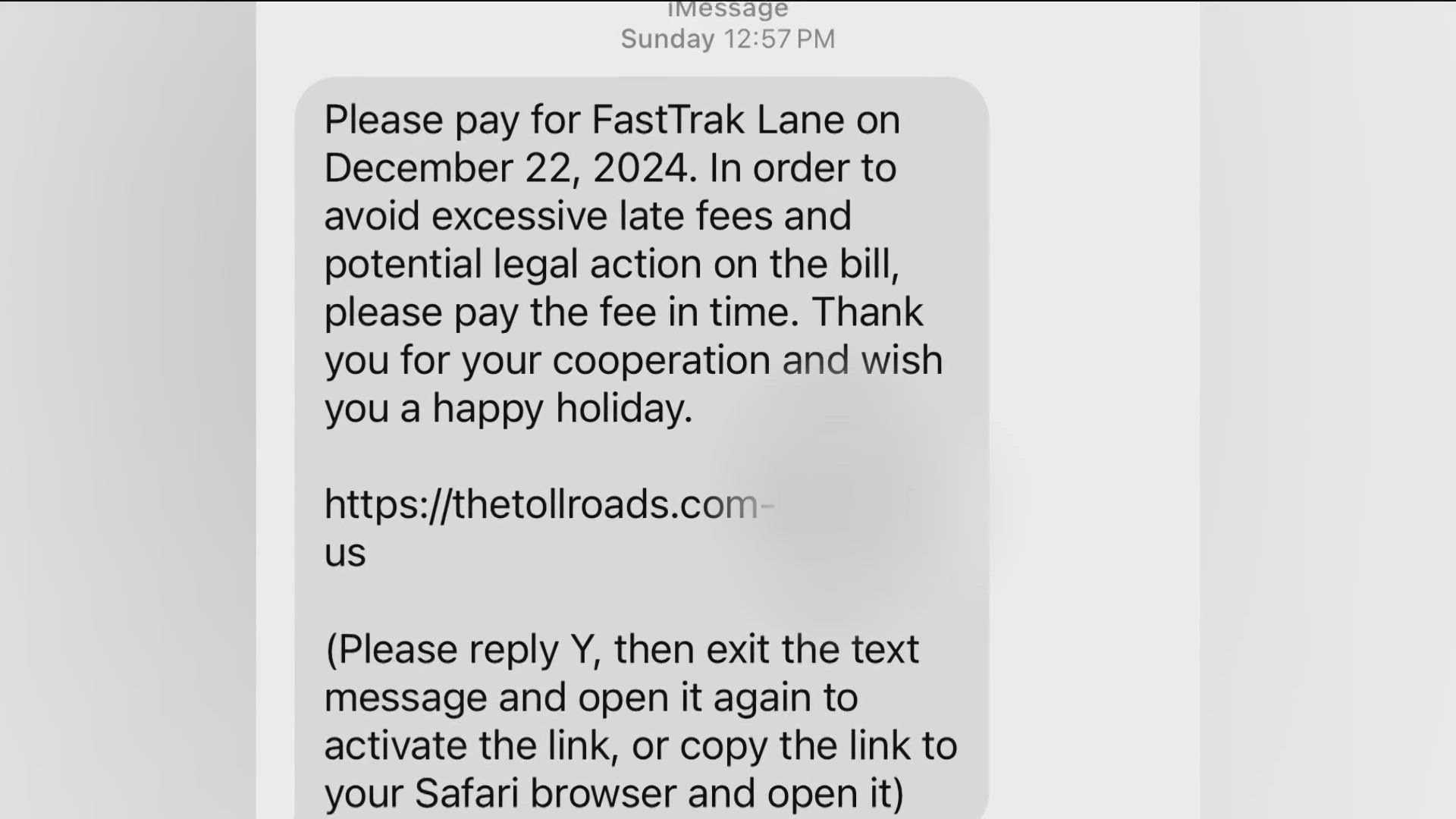News
Nationwide Toll Payment Scam Targets Unsuspecting Text Recipients

HARRIS COUNTY, Texas — Federal and state officials are warning Americans about a new text message scam claiming unpaid tolls, which could compromise personal information and finances. The Federal Trade Commission (FTC) issued a consumer alert on Tuesday, highlighting that recipients of such texts, whether or not they’ve recently used toll services, are likely being targeted by scammers.
The fraudulent messages typically demand immediate payment for supposed unpaid tolls, featuring a specific dollar amount and a link directing victims to a website asking for payment details. The FTC cautioned, “Not only is the scammer trying to steal your money, but if you click the link, they could get your personal info—like your driver’s license number—and even steal your identity.”
This alarming warning follows similar alerts from New York Governor Kathy Hochul, who noted that numerous residents reported receiving deceptive SMS messages soliciting toll payments. Many of these texts originate from international numbers and instruct recipients to respond with a ‘Y’ to receive further instructions.
Both E-ZPass and Tolls by Mail have stated that they do not send texts or emails requesting personal information. Residents have been urged to be vigilant and to ignore any unsolicited messages regarding unpaid tolls.
Authorities in various states, along with the FBI’s Internet Crime Complaint Center (IC3), have been monitoring the situation. Last year, the IC3 recorded over 2,000 complaints nationwide concerning toll-related “smishing,” a term combining SMS and phishing. The FBI indicated that the scam’s language is nearly identical across different states, with variations in contact information.
In Georgia, the State Road and Tollway Authority issued a warning about a “growing wave of SMS texting attacks on toll road users.” Similarly, the Central Texas Regional Mobility Authority advised against clicking on unknown links and to report suspicious messages.
“Fraud activity continues throughout the nation, with scam artists sending fake messages claiming you have an invoice from using E-ZPass,” stated a Texas Department of Transportation alert. “Do not reply and delete such messages.”
The FCC has identified smishing as a significant threat, with scammers utilizing tactics that exploit the urgency and fear in their messages. The toll scam is emblematic of a larger trend, as spam texts are becoming more sophisticated and targeted.
According to the FTC, the total amount lost to phone scammers reached $25 billion last year, averaging about $450 per victim. The alarming statistic showcases the prevalence and impact of these scams, particularly affecting younger citizens, who are three times more likely to fall victim than older adults.
The rise of generative AI also has implications for these scams. Increased personalization in messages can make scams more convincing. “Scammers have become better at orchestrating targeted attacks using available personal data,” said a cybersecurity expert. “Scamming has evolved into a very lucrative industry.”
Experts recommend that individuals refrain from engaging with any suspected scams and to report fraudulent messages to the FTC or the IC3. The FTC suggests deleting the texts without responding and checking with legitimate authorities if concerns persist.
A representative for the Harris County Attorney’s Office confirmed awareness of this ongoing scam and encouraged recipients to verify any claims against their actual toll accounts. Citizens can visit their local department’s website or contact them directly for assistance.
As these scams continue to proliferate, officials urge vigilance among the public to avoid falling prey to these malicious schemes.












